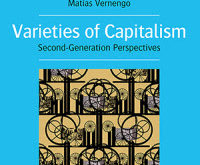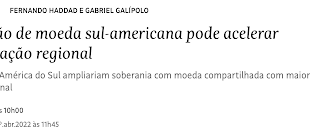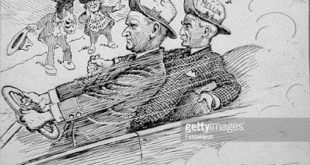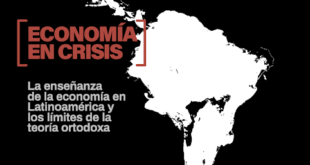Over the past twenty years there has emerged a compelling new discourse on varieties of capitalism. That discourse has an appealing common sense which challenges the view there is no alternative to free market capitalism. The initial view had a microeconomic focus that made firms the fulcrum of analysis. It distinguished between liberal market and coordinated market economies. Subsequently, there has emerged a second-generation literature which adopts a macroeconomic perspective that...
Read More »Luigi Pasinetti (1930-2023)
Pasinetti, Garegnani and the president of Italy in 2010Last week, in my senior seminar on the history of economic thought, I made the kids read a paper by Pasinetti on "Progress in Economic Science", which was published in a book edited by Boehm, Gehrke, Kurz and Sturn. It's a short defense of pluralism in economics on the basis of the co-existence of Kuhnian paradigms, with a relatively optimistic view of the possibility of progress, in a discipline in which, as he noted, the object of...
Read More »A common currency for the Mercosur
Actual proposal by Haddad and Galípolo at Folha de São PauloLula's visit to Argentina, during the Community of Latin American and Caribbean States (CELAC) meeting, brought about a brief discussion of the possibility of a common currency. I have discussed here (as well as many guest bloggers) both currency unions, in particular the euro, and it's consequences. Note that the FT piece linked suggested that the common currency was the first step in a long process. I doubt it, in part because,...
Read More »Alternative approaches to the history of economic ideas
Teaching two history of thought classes this semester. One more traditional, focusing on the evolution of the theories of value and distribution, and another one, my regular senior seminar, on the co-evolution of ideas and policy in the United States. For the former I used a short piece by Peter Boettke on the reasons for reading the original sources (and they do read a fair amount in my class). The blackboard (pictured above) is based on his discussion. I changed the titles and the...
Read More »The 1920-21 recession
Calvin Coolidge and Andrew Mellon A new paper by Ahmad Borazan on the 1920-21 recession, often seen in libertarian and Austrian circles as an example of a laissez-faire recovery. From the abstract:The US recovery from the 1920–21 recession has been presented as a triumph of laissez-faire policies and a serious challenge to Keynesian economics. This study interrogates this claim by using previously unutilised data and examines the historical development of the early 1920s recession and...
Read More »New book on the crisis of economics and teaching in Latin America
The book (in Spanish) titled "Economía en crisis : la enseñanza de la economía en Latinoamérica y los límites de la teoría ortodoxa" [Economy in Crisis: The teaching of economics in Latin America and the limits of orthodox theory] is edited Andrés Jose Maria Lambertini; Ignacio Silva Neira. The introductory chapter on the role of neoliberalism and its resilience in the region is by Esteban Pérez and myself. There's a webinar with Carolina Alves and Gabriel Porcile, besides the editors.It...
Read More »Cycles: empirics and the supermultiplier theory
New paper on the empirical evidence of the relevance of the supermultiplier for explaining economic cycles by Ricardo Summa, Gabriel Petrini, and Lucas Teixeira. From the abstract:The demand-led supermultiplier growth model proposes that business investment is induced by income while autonomous expenditures determine economic growth. The most known versions of the model are presented at high levels of abstraction, focusing on general analytical properties and dynamic stability conditions....
Read More »Kalecki’s alternative to Keynes and White and its consequences
[embedded content] Partial video (my fault) of the conference about the book edited by the late Jerzy Osiatynski and by Jan Toporowski published by Oxford University Press. Our chapter on Prebisch with Esteban Pérez is available in a preliminary version here.
Read More »Public vs private debt
I was teaching about deficits and debt this last week. If you know me and follow this blog, you'd know that I always emphasize the importance of the distinction between debt in domestic currency and debt in foreign currency. Functional finance authors (and MMT too) are correct in noting that a country cannot default on debt in its own currency (for a model of a currency crisis and default, in foreign currency go here; as afar as I know the only formalization of a PK alternative to the...
Read More »Kalecki’s Alternative to Keynes and White’s Plans its Consequences
Webinar on Kalecki and his views on the Bretton Woods agreement. To register go here.
Read More » Naked Keynesianism
Naked Keynesianism







-310x165.png)
-310x165.png)